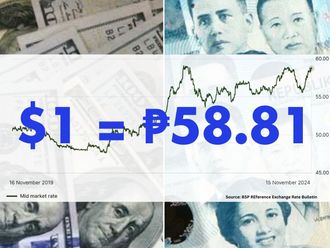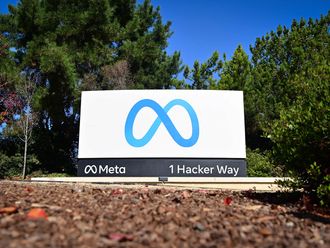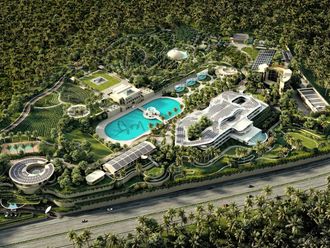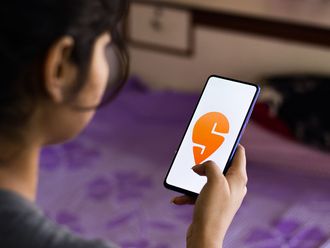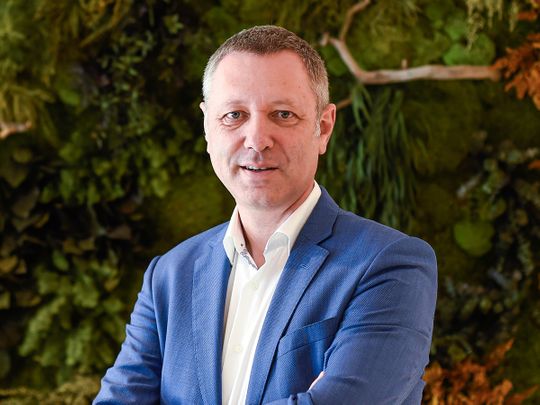
Dubai: UAE’s healthcare investments are moving well beyond creating state-of-the-art medical facilities or even investing in pharmaceutical production of generic medicines. These days, those investments are going into the very core of generating the knowhow - and potential cure - of diseases and their treatments.
Nothing encapsulates this better than the wide-ranging deal struck between The Department of Health – Abu Dhabi, which is the regulator for the industry, and the French pharma giant Sanofi. The deal, signed in the US mid-June, will see the alliance work on four distinct healthcare priorities, involving extensive R&D as well.
As part of this, Sanofi will extend its hand for a clinical research project and patient recruitment protocol as well as participate in DoH’s Cancer Advisory Group to ‘develop policies significant to the elderly cancer-patient community’. Both will also ‘co-create’ a high-risk population screening project that will support in the detection of rare metabolic diseases utilising AI tools.
Clearly, something big is developing in the UAE’s healthcare space - a broadening of the scope through funding and the use of best-in-class technology. Even in the private sector space, the Abu Dhabi headquartered G42’s health division is intimately involved in the decoding of how and why diseases happen and what should be the cure. In this case, too, there is heavy reliance on AI and assorted tech. These won’t be the only initiatives emerging from UAE healthcare.
In an interview, Jean-Paul Scheuer, MCO Lead and General Manager for Specialty Care at Sanofi Greater Gulf, talks through the scope of the company’s involvement in the DoH initiative and more.
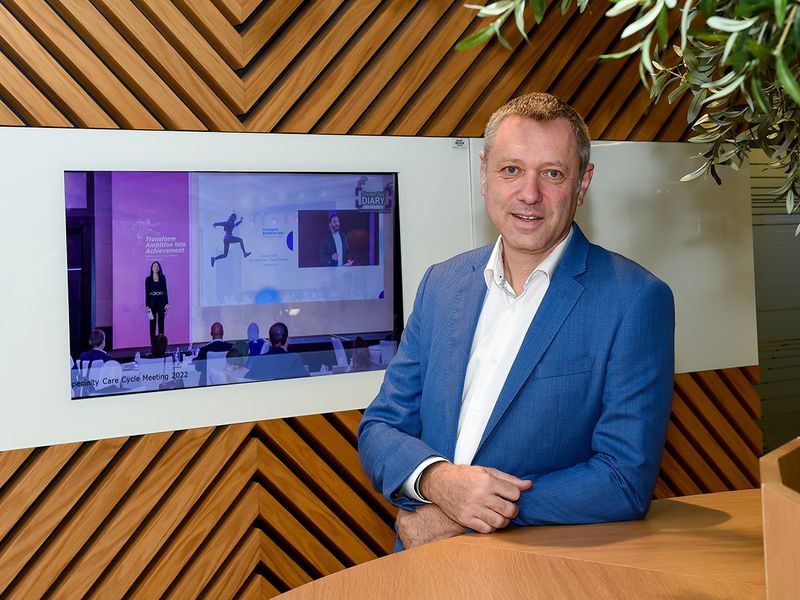
Where exactly will Sanofi’s role start in The Department of Health - Abu Dhabi project?
It depends on which area. On some aspects, we cannot take on a direct role, but are more as an advisor. At the end of day, most of it will remain in the hands of the DoH, as they are in control. They know better than us actually on what’s needed.
Some of the key activities include cooperation in clinical research and patient recruitment protocols - that’s an important agreement because it opens the door for more and better cooperation in the field of R&D.
The second one is in relation to oncology, where the need to bring better care for patients is huge. The DoH and Sanofi have agreed to pursue the creation of data generation and population research projects, in particular for different kinds of cancer and blood disorders.
One is more on the organisation of medical research and another is directly linked to research on oncology.
Can the alliance’s scope be widened to take on other aspects?
I could give you another example where Sanofi would support the launch of a clinical research and patient project in different pathology. We will soon be working with the DoH on rare blood disorders and rare diseases. Globally, Sanofi is one of the major companies in rare disease treatments, in particular when it comes to rare metabolic diseases.
We are using different tools like AI, and working with the DoH on population screening and a model that can better detect rare disease, especially when it comes to kids. This is where Sanofi will bring its expertise.
The way to practice medicine has dramatically changed. Digital already had a place well before Covid. It’s only accelerated the transformation.
Is Sanofi’s deal with DoH a one-of-its kind?
We have some agreements with other countries. We consider pharmaceutical companies like us to go much beyond just bringing new treatment, and be very active in the country at the same time. I don’t believe we have in the Middle East such global corporations taking on so many different topics in the same frame.
Is there a specific timeframe to the DoH arrangement?
This one with Abu Dhabi is specifically for five years. Generally, when everyone is happy or a project needs to be continued, we can extend. When the cooperation is fruitful, then there will be possibilities at the end of five years from now. We are not here to drive the projects, we are here to discuss what they need.
If it is not useful to them, then it’s useless to take on a project. If we identify some needs, where Sanofi has a specific area of expertise, we will be happy to widen the scope.
We had already started working on the project, especially on clinical R&D. The signing in Boston last June was more about making what we have been doing formal.
At one point, the generic medicines segment was seen as a huge investment opportunity in the Gulf. It doesn’t seem to the case now. Your thoughts?
From 2010 onwards, Sanofi had been investing a lot in generics companies, in Europe, Latin America and elsewhere. We made the acquisition of Global Pharma in Dubai at one point of time. That was in the spirit of Sanofi to diversify as much as possible and cover a wide scope of pharmaceuticals. Generics was one part of it.
That’s when the company changed its strategy and started to refocus on some core activities. There were others who had put their foot in generics and then started selling those operations.
Here, we sold the Global Pharma share four years ago. Mind you, it’s not because generics are not of interest - they have scope. But because it is a very specific part of the industry, and it was not where we wanted to be.
We realised our focus should be on R&D, launching new therapies, looking for new ways of developing products using new technologies. You cannot finance everything - we are already spending $6 billion in R&D each year.
To diversify more does not allow you to focus on innovation.
A wide-ranging healthcare deal
The Department of Health - Abu Dhabi and Sanofi deal extends to four strategic healthcare priorities - hematology and oncology, rare metabolic diseases, diabetes management and vaccines. The partnership is part of ‘Abu Dhabi’s ongoing efforts to position itself as a leading life science destination and an innovation hub’.
Key activities will include the launch of a clinical research project and patient recruitment protocol. On hematology and oncology, DoH and Sanofi agreed to pursue creation of data generation and population research projects for late-stage breast cancer, liquid tumors and blood disorders.
Sanofi will support in the launch of a clinical research project and patient recruitment protocol as well as participate in DoH’s Cancer Advisory Group to develop policies significant to the elderly cancer-patient community.


